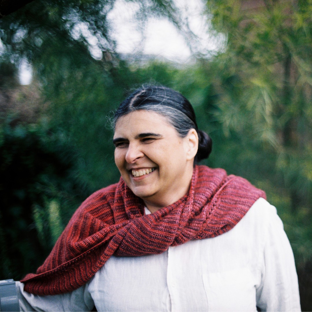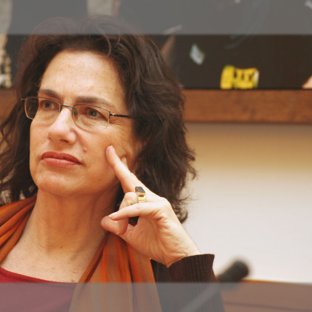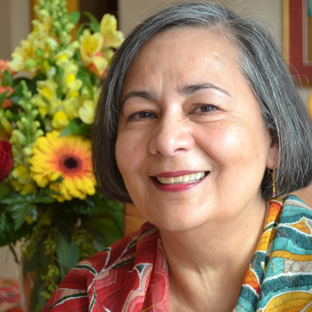Event and Ticketing Details
Dates & Times
Location
The Edge, Fed Square
The Atrium Flinders Street Federation Square Melbourne Victoria 3000
Get directionsThe Edge, Fed Square
The Atrium Flinders Street Federation Square Melbourne Victoria 3000
Get directionsOver four days, our 20 plus speakers – philosophers and theologians, historians and writers, believers and non-believers – will consider what it means to be religious, and what role the voice of faith may legitimately have in the conversations of citizens in a multicultural, democratic state and the community of nations.
Across Saturday, three keynote lectures from distinguished international guests each consider the challenges posed by – and to – faith in the building of modern communities. Following the three lectures, all three keynote speakers will be in discussion with each other, exchanging and challenging one another’s views.
In ‘Faith, Multiculturalism and the Community of Nations’, UK multiculturalism advocate Tariq Modood, Pakistan-raised Quar’anic scholar Asma Barlas and US moral philosopher Susan Neiman will discuss their keynote addresses, in a fascinating meeting of minds, with Shakira Hussein as participating chair. They’ll talk about the links between religious belief and a multicultural society, the relationship between Islam and contemporary Europe, and the importance of reason in public life.
For a recording of this lecture plus transcripts and recordings of the series, visit our Faith and Culture archive.


Susan Neiman is the director of the Einstein Forum in Potsdam, just outside Berlin. At the interface of eastern and western Europe, it is one of Europe’s most important centres of intellectual and cultural innovation outside the university framework.
Neiman studied philosophy at Harvard and the Free University of Berlin, and taught philosophy at Yale and Tel Aviv Universities. She is the author of Slow Fire: Jewish Notes from Berlin, The Unity of Reason: Rereading Kant, Evil in Modern Thought and Moral Clarity: A Guide for Grown-Up Idealists – a passionate plea on behalf of Reason in support of morality and political idealism, named among the New York Times‘ notable books of 2008.
Her books have earned critical acclaim from within the academy and outside of it, and prizes from PEN, the Association of American Publishers and the American Academy of Religion.
Shorter pieces have appeared in the New York Times, the Boston Globe, the Globe and Mail, and Dissent. In Germany, Nieman has written for Di Zeit, Frankfurter Allgemeine Zeitung and Freitag, amongst other publications.

Tariq Modood is one of Britain’s most eloquent advocates of a ‘multiculturalism of hope’. In the Guardian he wrote, ‘Respect for religion and moderate secularism are kindred spirits and are sources of hope for a multiculturalism that gives status to religious, as to other, communities’. In 2001 he was awarded an MBE for services to social sciences and ethnic relations.
Modood is a regular contributor to the media and to policy discussions in Britain and was a member of the Commission on the Future of the Multi-Ethnic Britain (the Parekh Report). He is a member of the Academy of Social Sciences.
Modood is Professor of Sociology, Politics and Public Policy, and the founding director of the Centre for the Study of Ethnicity and Citizenship at the University of Bristol. He has led many research projects on ethnic minorities and Muslims in the UK and in Europe and has published extensively on these topics, especially on the theory and politics of multiculturalism.
His latest books include Multiculturalism: A Civic Idea, Still Not Easy Being British, and as co-editor Secularism, Religion and Multicultural Citizenship, Global Migration, Ethnicity and Britishness (2011) and European Multiculturalisms.

Asma Barlas is a distinguished scholar and an outspoken and esteemed public intellectual, recognised as such in Europe and the US. She has written and spoken eloquently against Western misreadings of the Qur’an, and passionately against Islamic misreadings that would appear to justify the oppression of women.
Barlas was born and raised in Pakistan, where she was one of the first women to join the foreign service. However, she was dismissed on the orders of the country’s military ruler for her criticism of him, and eventually received political asylum in the US.
Barlas is a professor of politics and director of the Center for the Study of Culture, Race, and Ethnicity at Ithaca College, New York. In 2008, she also held the Spinoza Chair in Philosophy at the University of Amsterdam. Her degrees attest the breadth of her interests: she has a PhD in International Studies, an MA in Journalism and a BA in English Literature and Philosophy.
She writes about Qur’anic hermeneutics, Muslim women’s rights and Western representations of Islam and Muslims. Her best-known book is ‘Believing Women’ in Islam: Unreading Patriarchal Interpretations of the Qur’an.